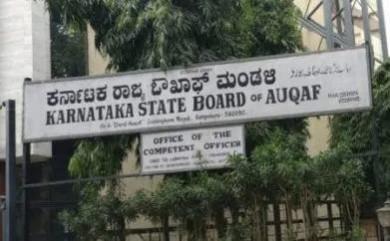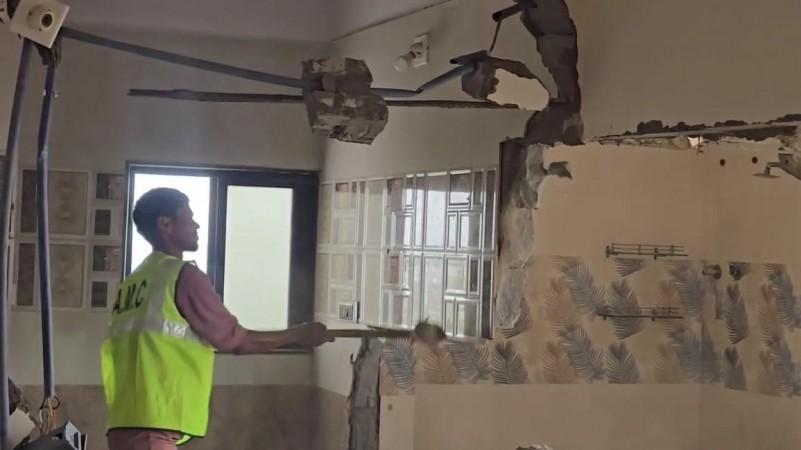
In a significant move, the Ahmedabad Municipal Corporation (AMC) has commenced demolition proceedings against an illegally constructed building linked to Salim Jumma Khan. Khan is at the center of a Rs 100-crore scam involving the Waqf Board and municipal land in Ahmedabad's Jamalpur area.
Salim Jumma Khan, along with four others, was arrested by the Ahmedabad Police on April 20 in connection with this fraud. The Enforcement Directorate (ED) also took note of the case in May, launching its own investigation. The origins of this case date back to 2009 when Khan allegedly encroached on land that once housed a school destroyed in the 2001 Gujarat earthquake. Over the years, he constructed residential and commercial units on the site, posing as a trustee and collecting rent from these properties for over two decades.
The AMC had issued a notice during the COVID-19 pandemic (2019–2020) when the illegal construction took place. Despite the notice, Khan allegedly sold all 85 flats in the building without obtaining legal approval, citing a lack of police protection as a reason for non-compliance. Recently, the AMC began the demolition of the structure. Although bulldozers had not yet arrived, workers used sledgehammers to start dismantling the building. The power and water supply to the nine-storey illegal structure, which spans 2,734 square meters, have also been disconnected. Once the premises are fully vacated, a full-scale demolition will proceed.

The Waqf Board in Gujarat is a statutory body responsible for managing and safeguarding properties donated for religious or charitable purposes under Islamic law. Gujarat is home to thousands of registered Waqf properties, ranging from mosques, dargahs, graveyards, and madrasas to commercial and residential assets, many of which are situated in prime urban locations. However, the board has faced recurring allegations of mismanagement, encroachments, and illegal transfers, often involving powerful local trustees and political interference.
Despite periodic audits and state-level oversight, enforcement remains weak, and several Waqf lands have been embroiled in disputes or scams. This situation underscores the urgent need for greater transparency, digitization, and accountability in Waqf property administration across the state. The current crackdown by the AMC and the involvement of the Enforcement Directorate reflect a growing recognition of the need to address these issues decisively.
In a related development, the Enforcement Directorate has extended its raids in connection with the Waqf Board scam involving Salim Jumma Khan. The agency has reached the residence of a relative of Congress's Danilimda corporator and Leader of Opposition in the AMC, Shehzadkhan Pathan. This move indicates the seriousness with which the authorities are pursuing the case and highlights the broader implications of the scam.
Related








